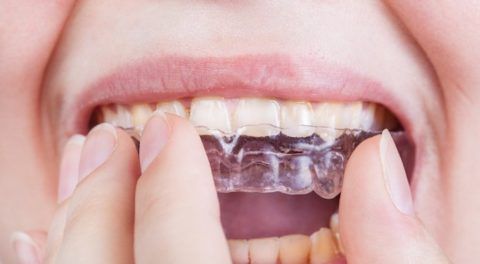Some Facts about Bruxism
Bruxism is the medical term used for the condition in which a person grinds teeth. Teeth clenching or grinding may seem like a habit but it is actually an issue which can be both acute and chronic. And there are several complications which can occur as a result of this habit.
The grinding of teeth involves the back and forth movement of teeth across each other. And teeth’s grinding usually occurs while the person is not in proper consciousness, i.e. it happens during sleep. Children grind their teeth more than others but they leave this habit of grinding after losing their primary teeth. Most of the adult people who grind their teeth are usually unaware about their habit and they come to know about it when they are told about it.
The grinding of teeth mainly involves tight pressing of upper teeth against the lower teeth. When we chew our foods, our teeth exert a pressure of 30 – 40 pounds. However, the pressure exerted during grinding of teeth jumps to hundreds of pounds. Grinding of teeth can happen during night as well as the day.
According to most of the studies, grinding of teeth that occurs during day time is hugely associated with the stress. Therefore, this kind of teeth’s grinding can be treated by working on methods to relieve the stress. A physical therapy may be quite helpful in this regard. Sometimes, it only takes having awareness about the issue to treat this habit.
Night time bruxism is a bit complicated as compared to day time bruxism. And since a sleeping person has no control over their body, there are no behavioral modifications which can relive this problem. Therefore, it is important to consult a dentist to have night time bruxism treated. Most of the times, the night-time bruxism is treated with the help of a special mouth guard which is often known as night guard. This mouth guard aims at resting the teeth of upper and lower jaw in perfect condition in order to avoid any grinding.
Studies also suggest that night time bruxism may be connected to sleep apnea which is a problem associated with the expansion of muscles in the throat. And the same studies conclude that treating sleep apnea can actually treat the problem of teeth’s grinding. Apart from sleep apnea, the exact causes of sleep apnea are not fully known. However, the symptoms of this problem are well known. These symptoms include headache, jaw soreness, insomnia, TMJ problem, teeth sensitivity, and stress.
Based on these symptoms, you can get your teeth checked by your dentist and they will surely help you identify the root cause of the problem as well.


